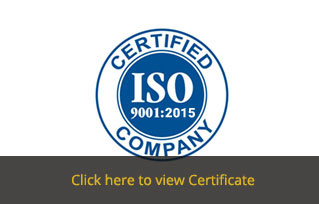Calibration Gas Mixture Accuracy Determination
There are many tools and equipment that rely on calibration gas mixtures to provide accurate measurements. That is why it is important that calibration gas mixtures are procured accurately. Here is how you can determine the accuracy of a calibration gas mixture.
- Preparation Tolerance
Preparation tolerance is also known as blend tolerance. It refers to the level of accuracy to which a manufacturer can meet the required values of the customer based on how they manufacture their gas. While procuring gas, a specific number is aimed for. Though hitting this target is not always possible, there are some methods that make it easier to do so. Volumetric vs gravimetric manufacturing is a good example of this. If the gas mixture value is nowhere near the required value, then it means that the gas is of inferior quality which can have an impact on the accuracy of the calibrated instrument.
- Measurement Uncertainty
The various tools used by calibration gas suppliers to measure the result of the gas mixture need to be accurate as well. This is what is meant by measurement uncertainty. It depends on the type of measurement being used. For comparing the various gasses, the method of measurement needs to be the same. Gas can be measured in two ways-volumetric or gravimetric. Gravimetric is all about measuring what is happening inside the cylinder and also includes analysis-based measurements. This type of measurement needs a gas analyzer and alternative reference gas mixtures. The analyzer, quality of the reference gas, operator skill, and accreditation of the process can all impact the quality of the gas mixture. Gravimetric measured calibration gas mixtures analyzed through an accredited process are considered to be of the highest quality.
- Accuracy Of Non-Refillable And Pressure Cylinder Gas.
While determining the accuracy of a calibration gas mixture, it is important to keep a tab on the accuracy in non-refillable and high-pressure cylinders
The accuracy in a refillable cylinder can be measured more clearly. There are four ways it can be measured.
Certified Gravimetric Standards are used mainly for calibrating laboratory readers and safety equipment.
Reference Gravimetric Standards make use of high precision balances for achieving a higher level of accuracy. Analytical standards are done by calibration gas suppliers only if there is a need for analytical data on the reference materials.
Accredited Analytical Standards deliver the highest quality results with minimum risk.
WHY SHOULD YOU CALIBRATE YOUR MEASURING DEVICES?
The accuracy of all measuring devices degrades over a period of time due to wear and tear but it can also be caused by electric or mechanical shock and hazardous working environment due to oil, metal chips, etc. Depending on the type of instrument used and the environment, there are chances that it may degrade much faster or over a longer period of time. But the main thing to remember is that calibration can improve the accuracy of a measuring device and also the quality of calibration gas mixtures
The costs and risks associated with a non-calibrated measuring device could be way higher than the cost of calibration itself. That is why measuring instruments need to be calibrated on a regular basis by Alchemie gasses and chemicals Pvt Ltd.
Alchemie Gasses and Chemicals Pvt Limited uses advanced and state-of-the-art gravimetric scales, tools, and instruments. We have cylinders in various sizes to match your requirements which can be easily viewed on the specification and mixture component page.
All our devices and reference materials are produced from international meteorological institutes like NPL/NIST and NMI.



